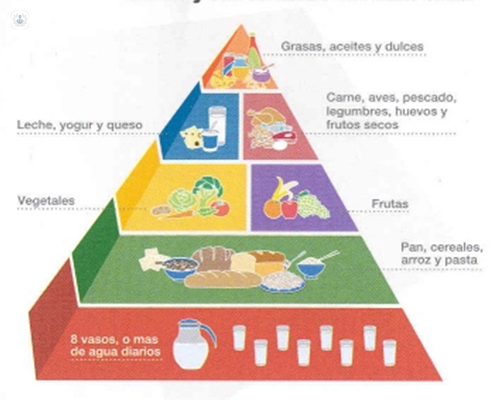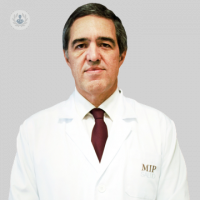How we should feed when we grow older
Written by:A positive maturity involves reviewing the value of acquired habits and attitudes, enhancing the positive ones and correcting those that can lead us on undesirable paths.
It is an individual discernment, like all that affect the quality of life. This process can be manifested in each of the daily acts and behaviors.
One of the areas that have the greatest impact on maturity is health; WHO defines this concept as "a state of complete physical, mental and social well-being, and not just the absence of disease or infirmity."
We are what we do not eat
One of the most relevant aspects related to health is food: what, how, when and how much we eat or stop eating.
When maturity is reached, people have already well established habits that have been consolidated over the years. In most cases, they were formed unconsciously, beginning in early childhood.
We must also take into account that food is increasingly based, especially in childhood, advertising pressure or customs alien to our culture. In Spain we are even losing the so-called "Mediterranean diet", the healthiest dietary model known.

We are all aware that we do not eat well, but we are equally aware that food is a source of pleasure both as a source of health. Eating well is in fashion, but enjoy the food even more.
How to know if my food is good
To know if the feeding is adequate or you can not measure the weight and size. Contrary to what many people think, living longer and healthier people who gain weight in the course of their lives than those who remain the same weight throughout life. But it is not advisable to be guided by the weight and height charts that appear in the magazines; The best available measure is not weight, but body mass index (BMI):
Weight (kg)
BMI = --------------
Size (m) 2
As a general rule we can refer to a BMI between 22 and 28 to 65 years and between 23 and 29 from 65 years.
How much and when should we eat
In addition to considering changing weight or calorie intake, another beneficial habit may be to correct the meal distribution throughout the day.
Minor amounts are preferred in more rations. The minimum reasonable number is three shots each day; It is not recommended to eliminate any of them and it could be beneficial to do four or five shots.
Breakfast is perhaps the most important meal of the day and should never consist of a solitary coffee. It is necessary that breakfast provide approximately 25% of the total food of the day, and should be as varied as possible.
Malnutrition in the elderly
Over the years people become fragile and malnutrition can become a major health problem.
Much research is being done on ways to detect precocious feeding problems at maturity. A test developed by Professor Vellas, from Toulouse, called the Nutrition Minievaluation (MNA), has become very popular today.

Some recommendations of the Spanish Society of Endocrinology and Nutrition to maintain a good nutritional status in the elderly are:
- Do not skip mealtimes. Often, seniors will suspend one of the main meals, usually dinner. This is not good, as it will stop eating important nutrients and will tend to overeat at the next meal. The healthy thing is to dine earlier and do it with foods of easy digestibility and low fat: pasta, cooked vegetables, fruits.
- Eat in moderation and variety: a little of everything and not much of a single. Observe the food pyramid:
- Eat low fat and good quality. Replace whole milk and yogurt with skim or semi-skimmed milk. Select meats and cuts with lower fat content.
- Consume plenty of fluids, fruits and vegetables to avoid constipation .
- Consume salt in moderation .
- Whenever not contraindicated, a small amount of wine or beer can be included in the diet (1 glass daily), not forgetting that it provides calories but not nutrients.
- Watch for products that are advertised "for diabetics", "light", or "sugar free". This may be misleading advertising.
For more information, consult your Geriatrics specialist .


